Kettlebell exercises can help build up many areas!
Kettlebells are all the rage these days. Many people consider kettlebell exercises to have better functional value than dumbbells, and for that reason, it is drawing a cult following. Heck, we even have kettlebells that look like chimps, orangutans, Bigfoot, and even Darth Vader.
While kettlebells provide the convenient size and portability of a dumbbell, they have a unique impact on your muscles. The spherical weight of a kettlebell can be anywhere between six to eight inches from your hands, which adds an unparalleled challenge for core stability and stabilizer muscles.
Kettlebell exercises usually involve several muscle groups at once, making them a potent compound lift-focused training tool. The versatile tool that they are, kettlebells can be used for a variety of exercises that improve both your strength and cardiovascular fitness.
Check Out: Best Kettlebells For Durability & Versatility (Updated 2021)
Origin of The Kettlebell
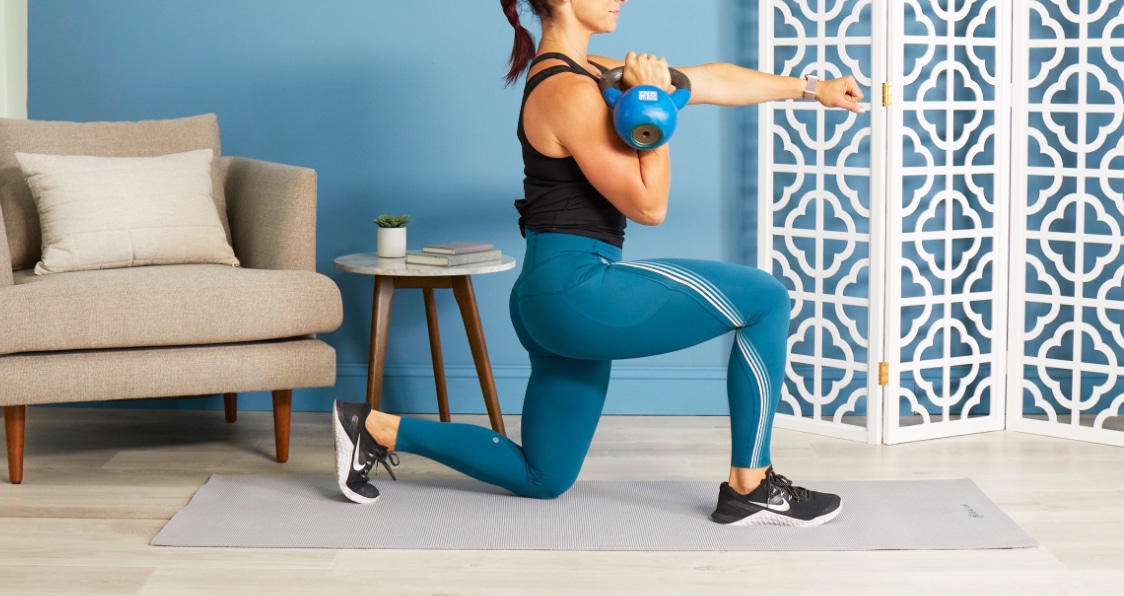
Before we get to the exercises which will transform your rear forever, let us talk about how the weird-looking training equipment came to be.
Kettlebells were developed by Russian strongmen in the 1700s.
Interestingly, in the 18th century, the girya (as the kettlebells are called in Russia) were primarily used to weight crops until some burly Russians started lifting them for building strength and endurance.
Russians and their awkward inventions, right?
The cannonball resembling training equipment began to be used for recreational and competition strength athletics in Russia and Europe in the late 19th century.
Trivia: The English term kettlebell has been in use since the early 20th century.
Kettlebells are usually made of iron or steel and are sometimes covered in colorful vinyl with a comfortable handle grip.
Must Read: The Most Effective Compound Exercises For All Levels of Experience
Benefits of Kettlebell Training
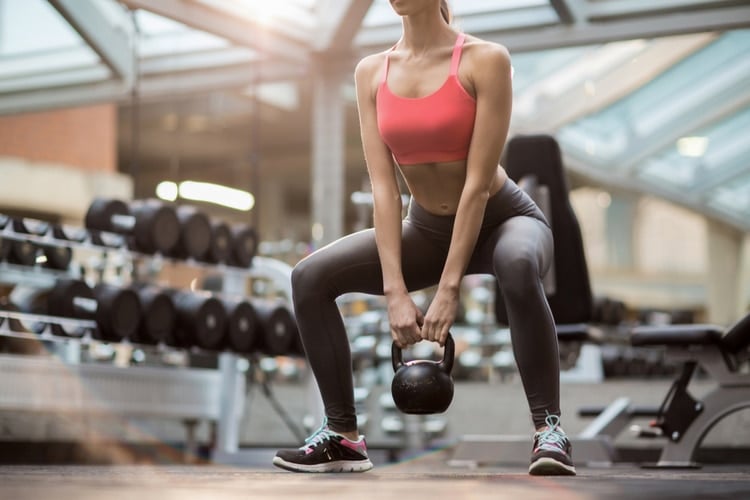
So, you are wondering why bother with the kettlebells and not just use dumbbells instead? Here are the benefits of using kettlebells in your workouts:
1. Helps Develop Explosive Hip Strength and Speed
You cannot go wrong with kettlebells if your goal is to build explosive hip strength. Don’t worry. We won’t ask you what you need the explosive hip strength for in the first place.
Kettlebell swings are one of the most common and effective kettlebell exercises. They are also efficient at training your glutes for strength and speed.
But why is hip strength so important, you ask?
Hip strength can help improve your overall stability and can prevent injuries. Also, hip strength and speed play an important role in many athletic movements, such as jumping, sprinting, and squatting.
Related: Fifteen Essential Lower Body Exercises To Add To Your Training
2. Improves Core Strength and Stability
Most kettlebell movements are a form of ballistic training. Ballistic training improves explosive power by maximizing acceleration and minimizing deceleration. These explosive lifts activate the abdominal muscles and require core contraction and coordinated breathing. This process results in an improvement in core strength.
On top of this, kettlebell exercises are multiplanar, meaning – you will be training your core from all directions. It helps with building overall core strength.
3. Increases Range of Motion
Most kettlebell exercises are compound movements that require you to move through multiple planes of motion. Explosive movements through these planes, over time, results in improved flexibility, mobility, and as a result – a better range of motion.
Related: Full Range Of Motion Vs Partials: Which Is The Way To Go?
4. A Total Body Conditioning Tool
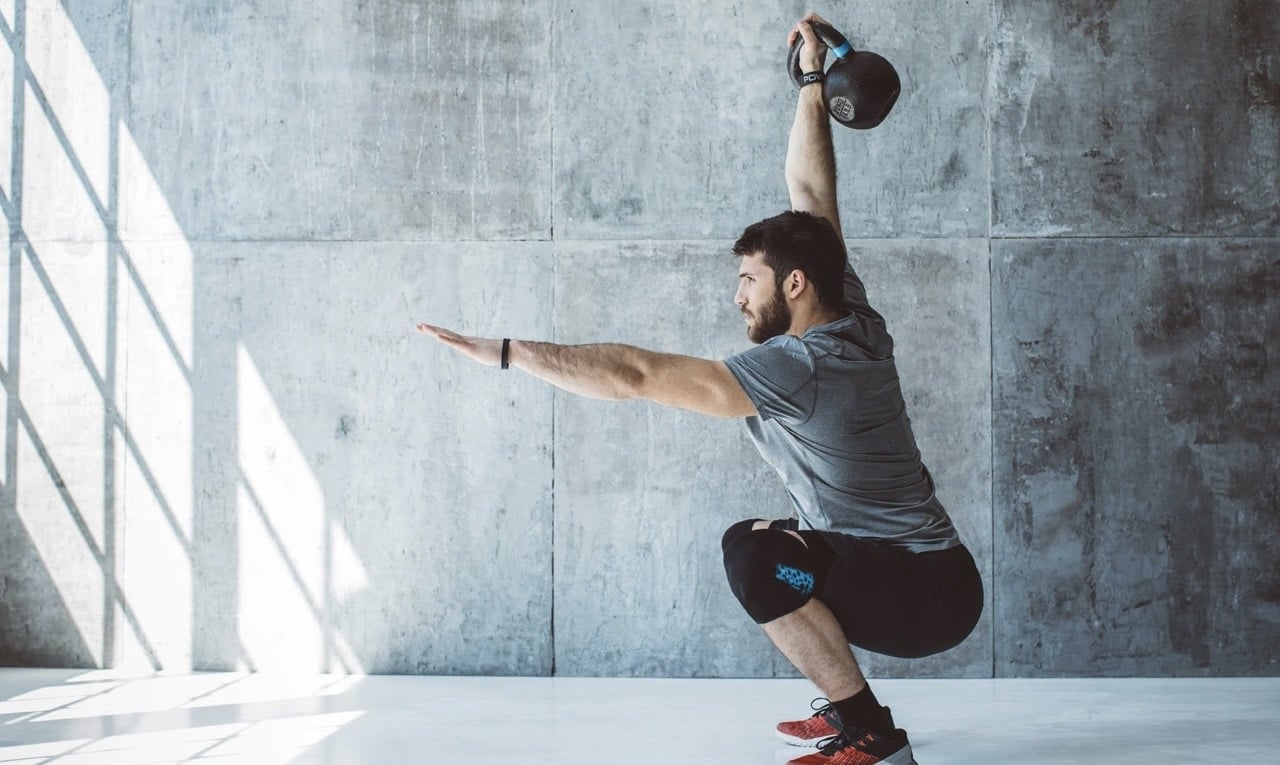
Don’t let the little friendly-looking weight training equipment fool you. They can cause total body annihilating in no time. Maybe there is a reason why some brands make them in the Primal shape.
Kettlebells are great at all the four aspects of fitness – strength, endurance, flexibility, and balance training. No matter how packed your schedule, you can always fit a 20-minute kettlebell routine into your day. The best part? You do not need to hit the gym to complete a kettlebell circuit, you could do it from the comfort of your living room or your garage.
Next Read: At Home Workouts With A Single Kettlebell
5. Facilitates Fat Torching Workouts
Kettlebell training circuits are nothing less than fat-burning fests. According to a study, swinging a kettlebell burns as many as 20 calories per minute. For people too lazy to do the math, that’s 400 calories for a 20-minute workout.
Better yet, kettlebell training often results in EPOC (express post-exercise oxygen consumption). Before you freak out – this is a good thing. It means that you would still be burning calories throughout the day after you are done with your kettlebell workout.
6. Improves Balance
Unlike while training with machines, you need to control your movement path while working with kettlebells. Since kettlebell movements have no predetermined movement paths, it requires your stabilizers to work extra hard, and over time results in their strengthening and improvement in overall body balance.
7. Develops a Stronger Posterior Chain and Improves Posture
Most kettlebell exercises are great for your posterior chain as they target your entire backside. Ballistic exercises like Kettlebell Swings help develop explosive strength in your glutes, hamstrings, lower and middle back, and traps.
Your newfound posterior chain strength will aid in jumping higher, running faster, and kicking harder. Not to mention, strong posterior muscles result in a better posture. Goodbye, slouching.
Must Read: Improve Hip Mobility to Boost Lower Body Power
8. Improves Muscles Imbalances
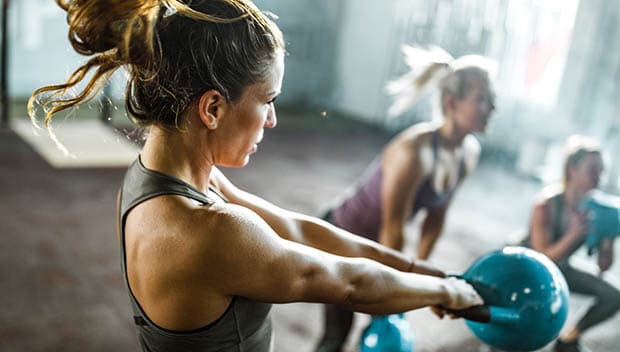
Since many of the kettlebell exercises involve unilateral movements, they help nail down muscle weakness and imbalances. While performing a kettlebell exercise, you might notice that your right side is weaker than the left on a specific lift.
With this information, you can re-design your training program to fix these discrepancies. If you have been training with barbells and machines for a long time, add kettlebell training to your regimen, and you will notice an improvement in muscle imbalances and symmetry.
Check Out: The Benefits Of Unilateral Training & Why It Matters
9. Enhances Muscle Coordination
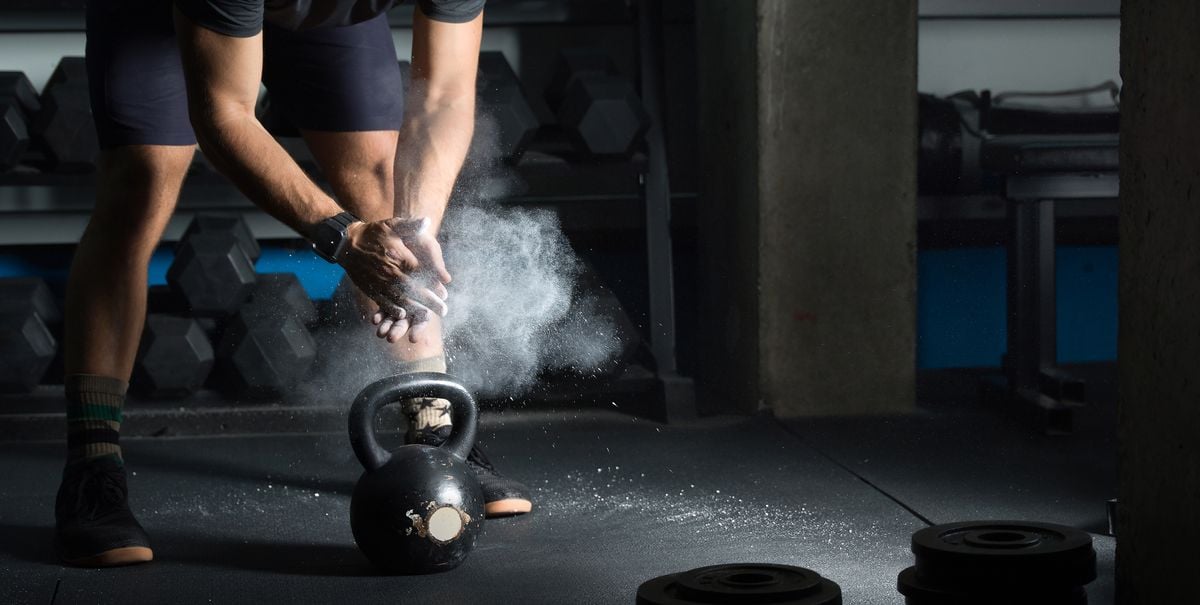
Unlike the linear movement pattern of barbells and machines, the dynamic nature of kettlebell training forces you to focus on the movement and have a sharp mind-muscle connection. This leads to improved muscle coordination.
Read: 6 Ways To Improve Your Mind-Muscle Connection
10. Builds Lean Muscle Mass
Although kettlebell training alone does not build crazy muscle mass, it increases the amount of lean muscle tissue. If you are a fan of ripped physiques, kettlebell workouts can help you achieve the conditioning you are after.
Not only does kettlebell training help build lean muscle mass, but it also helps in staying agile, athletic and improves mobility, flexibility, and range of motion. What else could you ask for?
7 Kettlebell Exercises For a Pear Shaped Rear
Contrary to popular opinion, you do not need barbells and dumbbells to build shredded wheels. The cannonball with handles is quite a powerful tool when it comes to building strength, conditioning, and mobility. So, grab a kettlebell and start carving legs that Greek gods would approve.
1. Kettlebell Goblet Squat
Goblet squat is one of the most versatile kettlebell leg-building exercises. Holding a kettlebell in front of your chest allows you to squat deep while minimizing the risk of an injury. Goblet squat also activates the highest number of muscle fibers in your glutes because you are holding the weight in the front and are hinging and leaning slightly forward.
Steps:
- Stand upright with a shoulder-width stance, and your toes pointed slightly outwards.
- Hold a heavy dumbbell (as per your strength level) in front of your chest. You could either hold the kettlebell upside down or hold the horns with both your hands.
- Pull your elbows in towards your sides and maintain this position throughout the exercise.
- While keeping your chest lifted, squat down as deep as you can comfortably.
- The kettlebell and your arms should stay inside of your legs and close to your body at all times.
- Return to the starting position explosively.
- Pause and contract your glutes at the top of the movement.
- Repeat for recommended repetitions.
Related: How to Perfect the Goblet Squat
2. Kettlebell Swing
Kettlebell swings are a popular cannonball exercise. It is an incredibly effective exercise for building hip power and explosiveness. This high-intensity exercise will also help burn off excess body fat.
Steps:
- Hold a kettlebell with both hands by the flat, top handle.
- Stand with a slightly wider than shoulder-width stance and let the kettlebell hang between your legs.
- At the starting position, keep your torso upright and brace your core.
- Bend at your knees as you push your glutes back, and lower the kettlebell straight towards the floor.
- Keep your arms straight and elbows locked out throughout the movement.
- Thrust your hips forward explosively and raise the kettlebell until your arms are parallel to the floor.
- Squeeze your glutes, core, and quads at the top of the movement.
- Hinge forward at your hips and push your butt back again, letting the bell drop on its own as you do.
- Keep a neutral spine throughout the exercise.
- Repeat for reps.
3. Bulgarian Split-Squat with Kettlebell (in racked position)
Kettlebell Bulgarian split-squat will set your glutes and hamstrings on fire. The racked position (in front of your chest) will help strengthen your core and stabilizers.
Steps:
- Grab a kettlebell in your right hand and hold it in front of your chest.
- Drape your left foot on a flat bench as you firmly plant the right on the floor.
- Make sure your right foot is out far enough so that when you lower your hips, your knee stays directly over your ankle.
- Bend your right knee and lower your body until your left knee is a few inches off the floor.
- Return to the starting position explosively and squeeze the life out of your right hamstring and glute.
- Complete the recommended reps on the right side before switching sides.
4. Overhead Kettlebell Lunge
This is probably the hardest exercise on the list. Overhead lunge forces your glutes and hamstrings to work on full throttle to stabilize the lunge. It also requires good shoulder and traps strength and stability.
Steps:
- Grab a kettlebell in one hand and press it overhead. Keep your arm straight and elbow locked out throughout the exercise. Your overhead arm should be perpendicular to the floor for the entire duration of the lift.
- Drop into a reverse-lunge by extending the leg opposite to the arm holding the weight.
- Bend your rear knee and lower your body until your knee is a few inches off the floor.
- Push with your rear foot and return to the starting position explosively.
- Complete the recommended reps on one leg before switching sides.
5. Single-Arm Racked Curtsy Lunge
You probably have seen the curtsy lunges on Instagram. Confused? These are a #FitGirl favorite, and hey, we are not complaining. Curtsy lunges are a god-send for glute development.
Steps:
- Stand with your feet shoulder-width apart and your left hand on your left hip.
- Hold a kettlebell in your right hand in the racked position at your shoulder. Let the cannonball rest on your shoulder for the duration of the exercise.
- Step your left foot diagonally behind you and lower your left knee until it almost touches the floor.
- Your right knee should bend to about 90-degrees at the bottom of the movement.
- Drive through your right heel to return to the starting position.
- Pause and squeeze the life out of your glutes and hams at the top of the movement.
- Do all your reps on one leg before switching sides.
6. Single-Leg Kettlebell Deadlift
Single-leg kettlebell deadlift is an incredibly effective kettlebell exercise for isolating your glutes.
Steps:
- Hold a kettlebell in your right hand, and lift your left foot slightly off the ground.
- While keeping your back and head neutral, lean forward by hinging at your hips.
- Raise your left leg off the floor slowly while keeping it in line with your body.
- Lower the kettlebell until it almost touches the floor.
- Keep your left shoulder blade pulled down your back.
- Slowly return to the starting position, and contract your glutes. Make the most of the move by keeping your rear foot off the floor as you go through the reps.
- Repeat for recommended repetitions before switching sides.
7. Kettlebell Squat and Clean
There is some learning curve to this exercise. Make sure you are not going too easy on yourself by using lighters kettlebells. Use a weight that puts a strain on your glutes from the first rep.
Steps:
- Stand with an upright torso and your feet placed shoulder-width apart.
- Bend at your knees and push your hips back to lower yourself and grab a kettlebell with both hands by the top of the handle.
- Drive through your heels to stand up as you pull the weight up to your chest.
- During the upward movement, quickly swap your hands from the handles to the cannonball.
- Lower into a squat, shifting your weight into your heels and pushing your hips back as you bend your knees.
- Drive your body up explosively and squeeze your glutes at the top of the movement.
- Reverse the movement by switching your hands back to the kettlebell handle and lowering the weight back down to the floor, bending your knees and pushing your hips back to keep your spine straight.
- Repeat for recommended repetitions.
Conclusion
You could perform all these exercises in a single leg workout or use some of them in separate routines to make the most of your glute training. After you see the results, kettlebells will become an indispensable part of your leg training regimen.
Which is your favorite kettlebell exercise? Let us know in the comments below. Also, be sure to follow Generation Iron on Facebook, Twitter, and Instagram.
